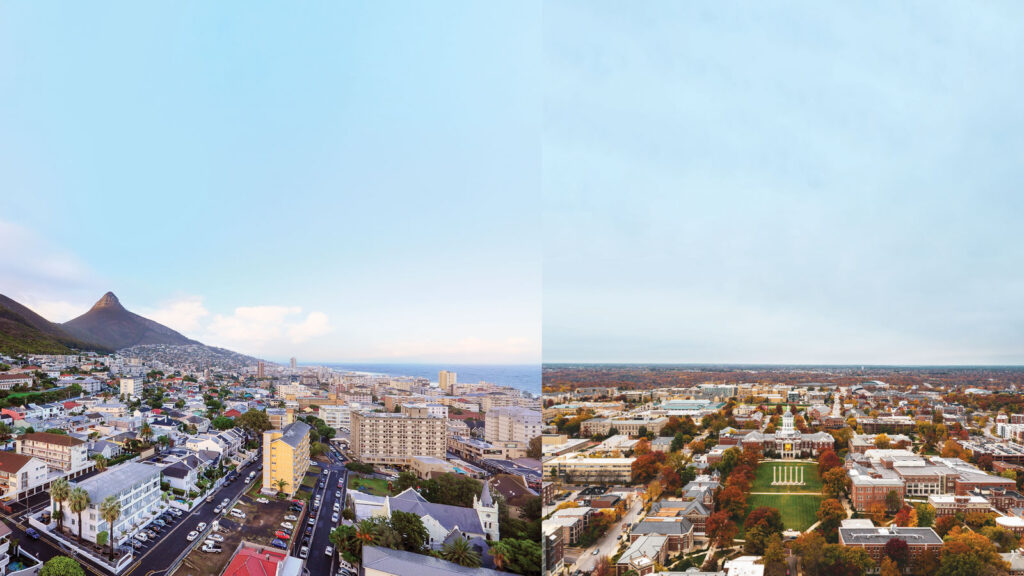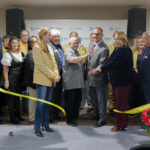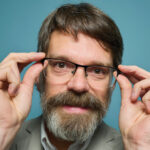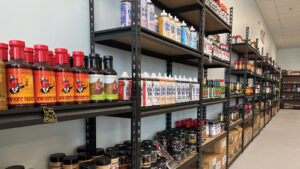Columbia, Missouri and Cape Town, South Africa swap ideas and students.
With the temperature hovering just above freezing, Columbia visitor Tiisetso Madisha pulled his heavy red coat shut and shivered. Back in Cape Town, South Africa, more than 8,600 miles away where Madisha attends Western Cape University, the early December weather was a balmy eight-four degrees.
Madisha and fellow WCU student Bobongile Bidla were halfway through a two-week stay at the University of Missouri. The pair of student entrepreneurs came to Columbia through the Entrepreneurs Without Borders partnership between Mizzou and WCU. The South African scholar-entrepreneurs were also the guest presenters at the Columbia 1 Million Cups gathering at the REDI Hub on December 6.
“We all think we are so different and live in different worlds — until we talk,” Bidla said a week later before a going away presentation at the MU’s Center for Entrepreneurship and Innovation (CEI) on the bottom floor of Cornell Hall. “We face the same challenges and opportunities.”
CEI director J. Scott Christianson beamed at Bidla’s observation.
“This exchange is so rich,” he explained. “The lessons our students learn will last a lifetime. That is what is most gratifying.”
In July 2023, Mizzou juniors Nez Redi and Michael Moriarty traveled from Columbia to WCU for a two-week trip in the first exchange in the Entrepreneurs Without Borders pilot program. The CEI is housed within the Trulaske College of Business and focuses on creating opportunities for students to learn outside the classroom through building connections with international collaborators.
Moriarty’s business, EcoReuse, focuses on keeping furniture out of landfills by repurposing discarded items that often have not worn out. Redi’s first business was a clothing brand with a similar aim of sustainability and eco-friendliness.
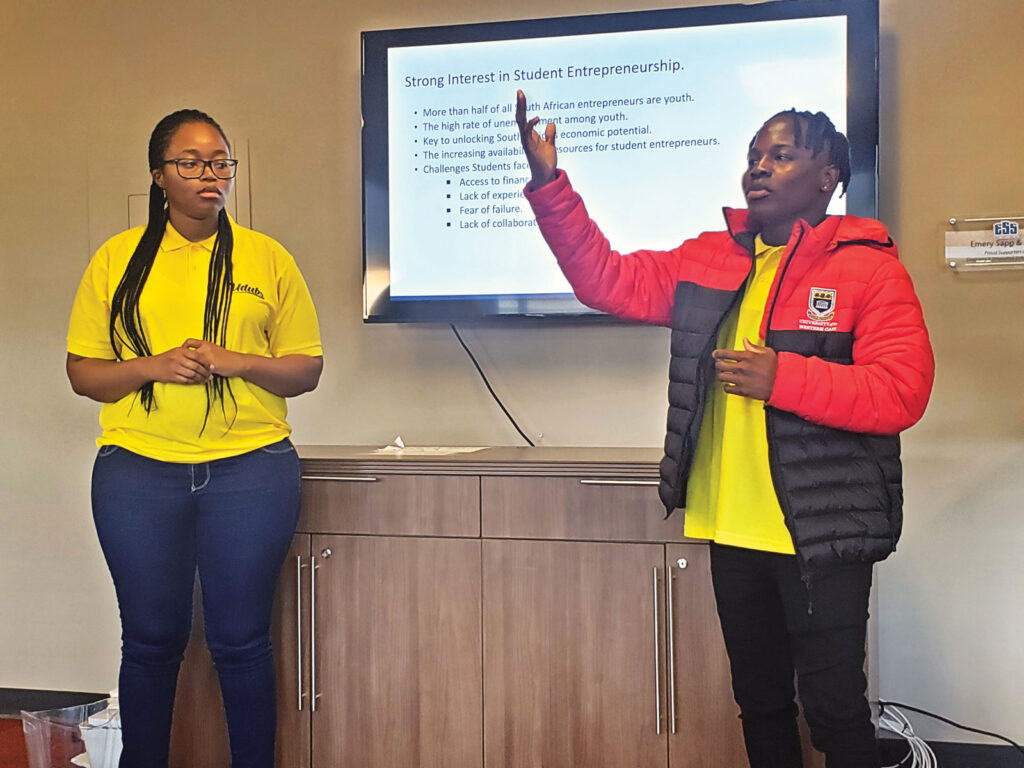
Tiiseto Madisha and Bobongile Bidla presented their insights to Columbia’s 1 Million Cups gathering on December 6.
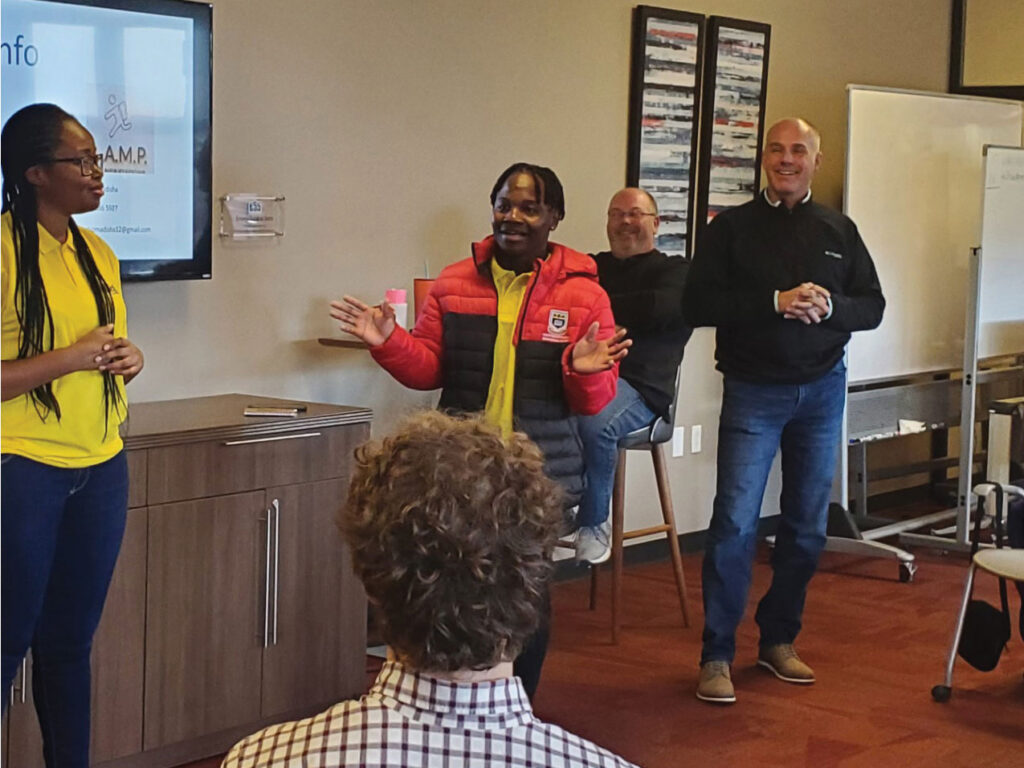
Tiiseto Madisha and Bobongile Bidla presented their insights to Columbia’s 1 Million Cups gathering on December 6.
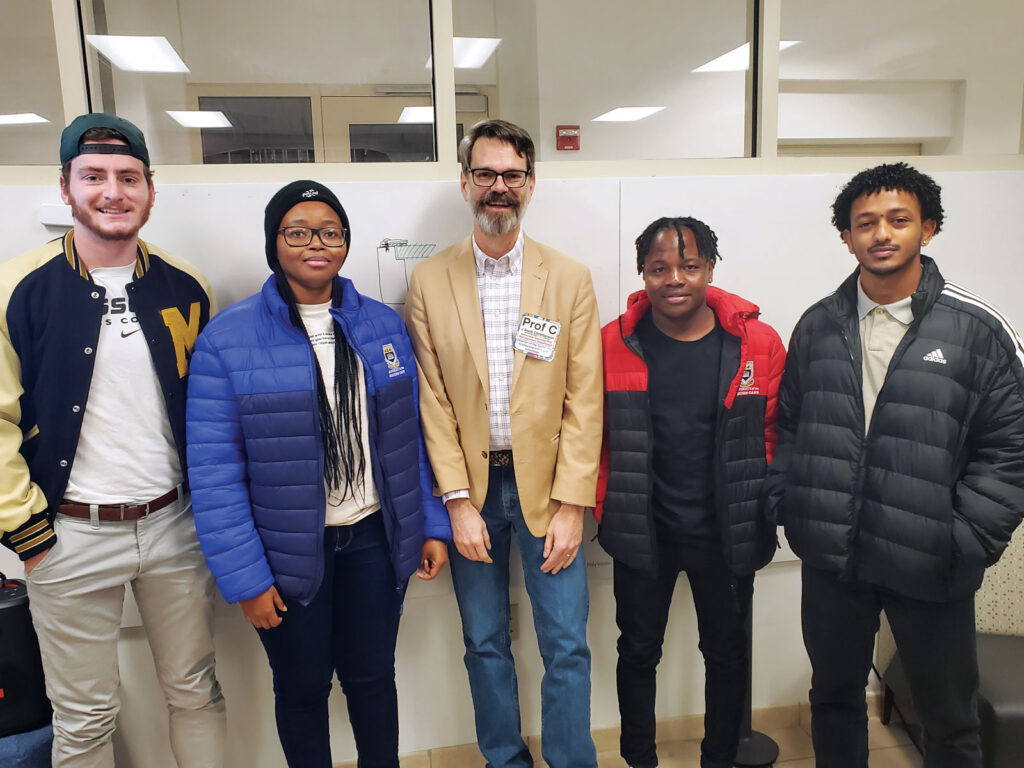
Michael Moriarty (MU), Babongile Bidla (WCU), J. Scott Christianson (CEI director), Tiiseto Madisha (WCU), and Nez Redi (MU).
“It’s not just the shirt or the style, but what does the brand stand for?” Redi explained. Connecting the vision of that message to potential customers — “let them see the change we’re trying to make in the world” — is one of his biggest challenges, whether in the U.S. or on another continent.
“The entrepreneurial ecosystem emerged from COVID energized,” Christianson said. And that energy is feeding the concept of “social entrepreneurship,” which he explained as, “I want to build a business, but I want to do something good in the world.”
Moriarty and Redi both stressed the importance of collaboration and building community when they went to Cape Town. Madisha and Bidla said they saw examples of those ideals during their time in Columbia, noting that the collaborative nature of startups and entrepreneurs was especially notable among the 1 Million Cups meeting group.
Bidla, a political studies master’s candidate at UWC, is interested in learning how organizations use technology to address key social issues, and she works as a research assistant and freelance content writer. Madisha, a senior studying business communications, economics, and financial management, is a founder of the LAMP program designed to connect high school students with university study opportunities, in addition to providing career guidance.
Madisha’s program will incorporate virtual reality to help expose high schoolers in South Africa to post-secondary opportunities. He said three out of every five students there don’t finish high school.
Whether from South Africa or Columbia, entrepreneurs making presentations at 1 Million Cups have the same needs: financing and connection to working capital, connecting with customers, and making sure their pricing structure is adequate and sustainable. But the differences are stark.
Columbia’s unemployment rate is around 2.4 percent. In South Africa, the unemployment rate hovers just below 30 percent, the highest on the African continent. A national energy emergency also hampers and discourages business success in South Africa, which practices “load shedding,” an ongoing period of national blackouts of energy supply.
Madisha and Bidla said they are committed to helping improve the South African economy, but they also see global possibilities for their companies.
They both said the 1 Million Cups experience and questions from the group made an impression. They were eager to connect with or help initiate a 1 Million Cups chapter in the Cape Town area, where connecting with government agencies designed to provide guidance for startups is difficult and time consuming. It can take up to two months to get an appointment with the Small Enterprise Development Agency, Madisha said.
Bidla said she was even more confident that collaboration, rather than competition, is the key to businesses helping other businesses get started and succeed.
“We need to not be afraid to take a risk and not be afraid to look for people to collaborate with,” she added.
When Moriarty and Redi traveled from MU to UWC, they attended lectures on business practices and participated in entrepreneurship workshops — while setting aside plenty of time to explore some of Cape Town’s storied historical buildings and tourist attractions.
“Going to South Africa was exactly the experience I needed,” Redi said. “Witnessing another group of people going through life and observing their struggles helped me to tap into my creativity.”
Redi and Moriarty worked with local entrepreneurs at UWC where they traded and brainstormed ideas, workshopped prototypes, and shared feedback with one another.
Moriarty said he learned what entrepreneurship looks like from a global vantage point, adding, “This is an experience that I feel will help me jumpstart my future career.”
Meanwhile, Christianson said he was encouraged by seeing and hearing about the Entrepreneurs Without Borders experience.
“Our challenges do not seem to be lessening as time goes on,” he said, pointing to the student entrepreneurs in the room at Cornell Hall. “Young people like this – they are going to be the ones to solve it.”
